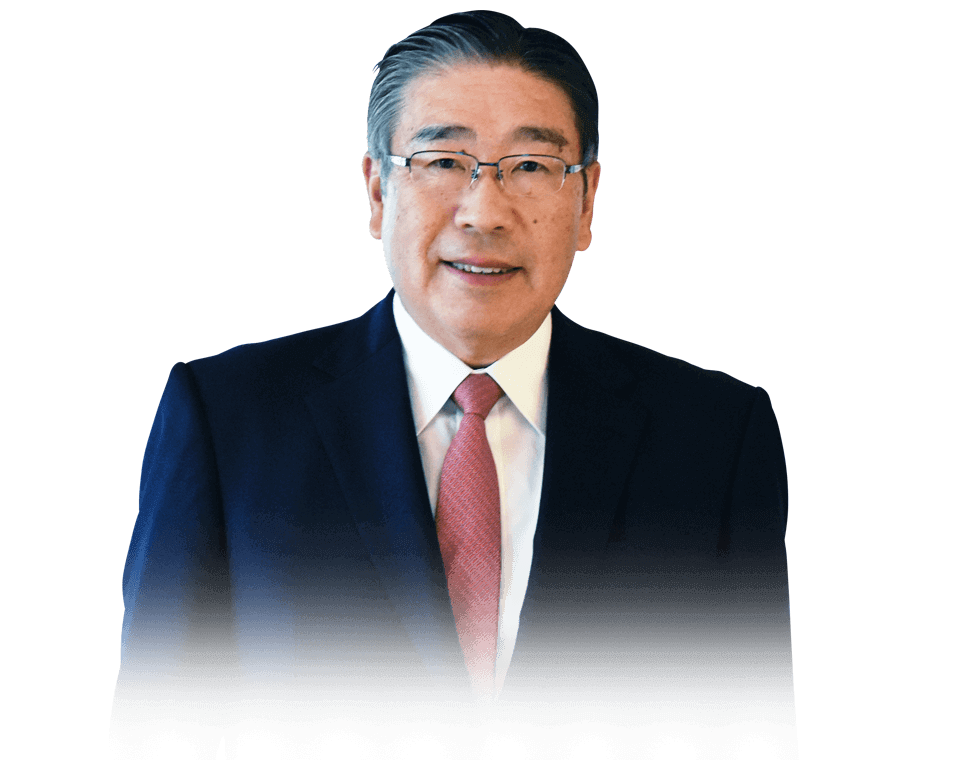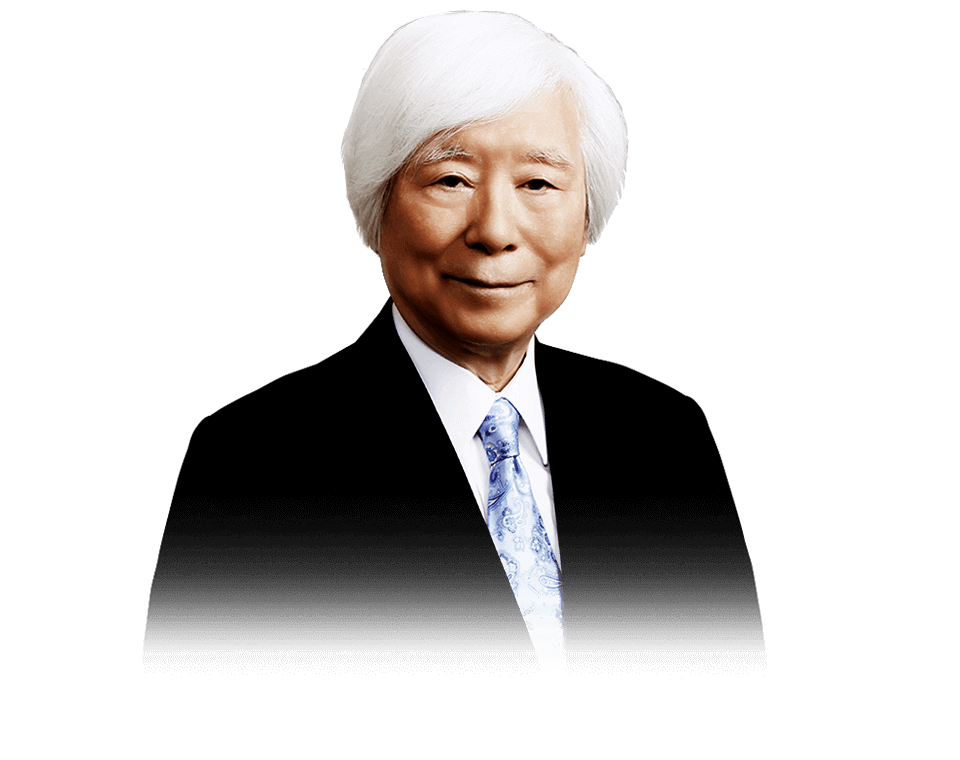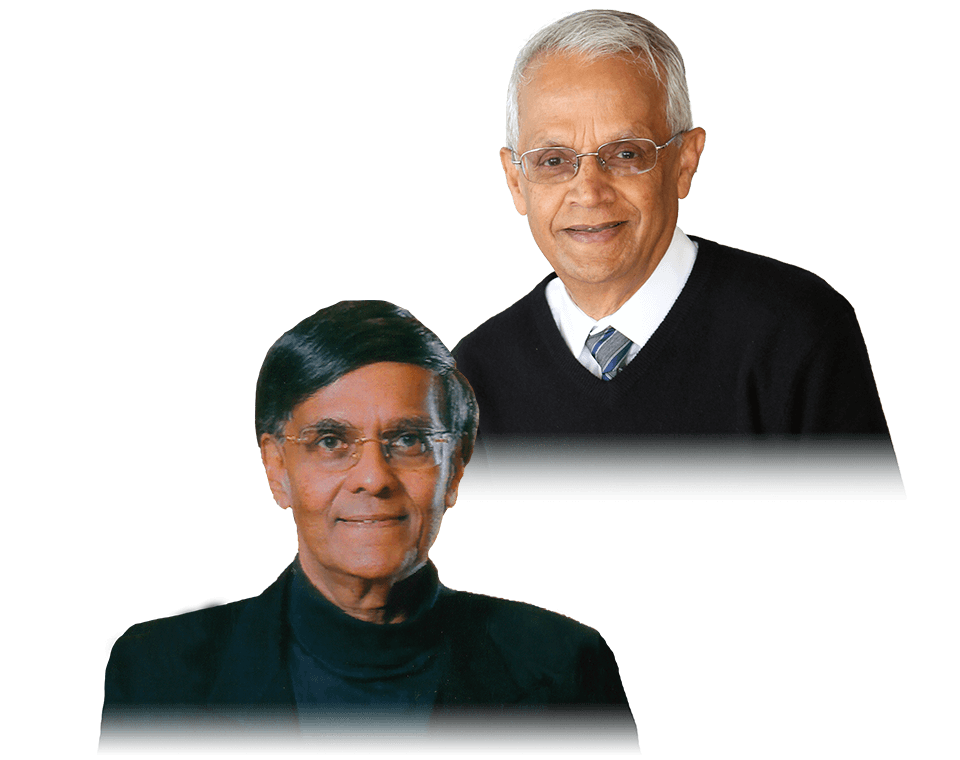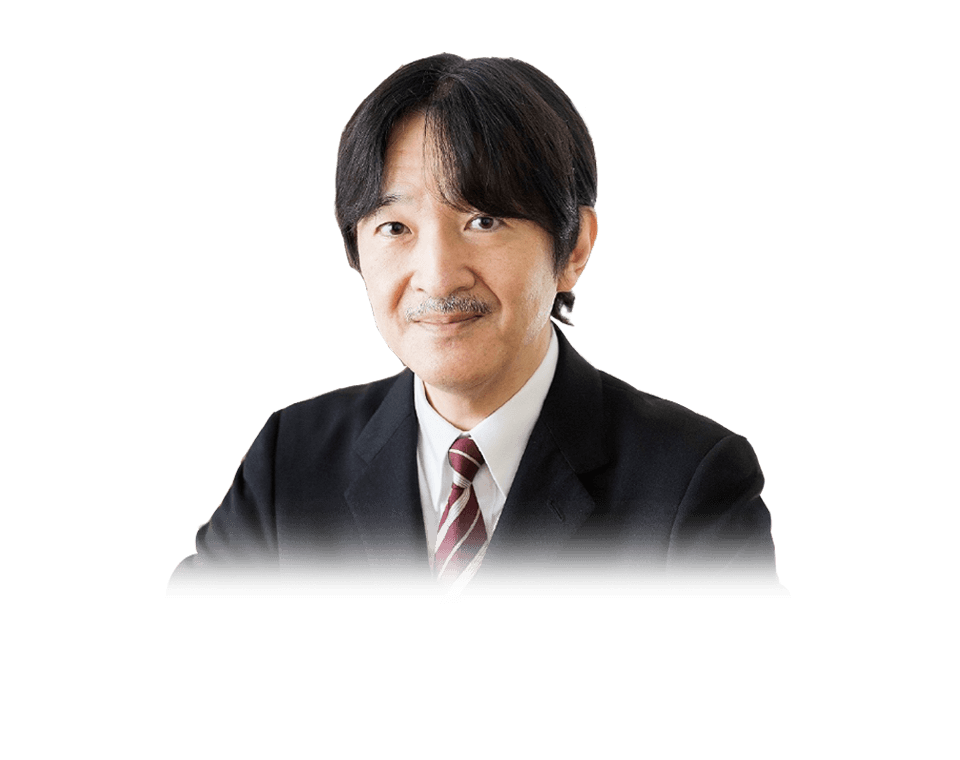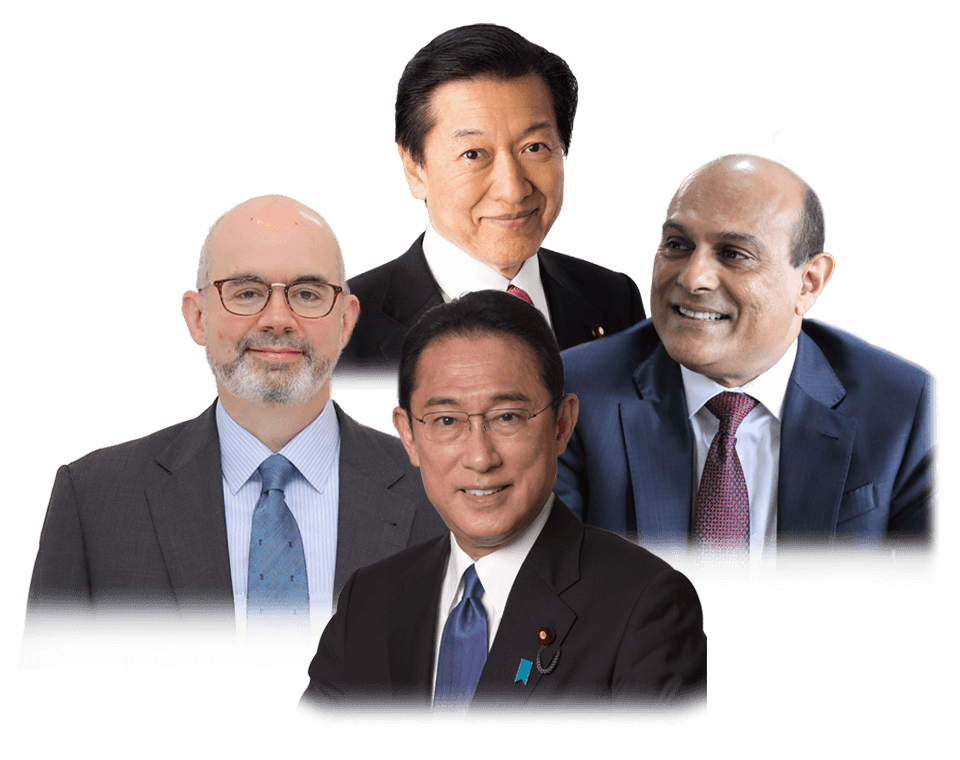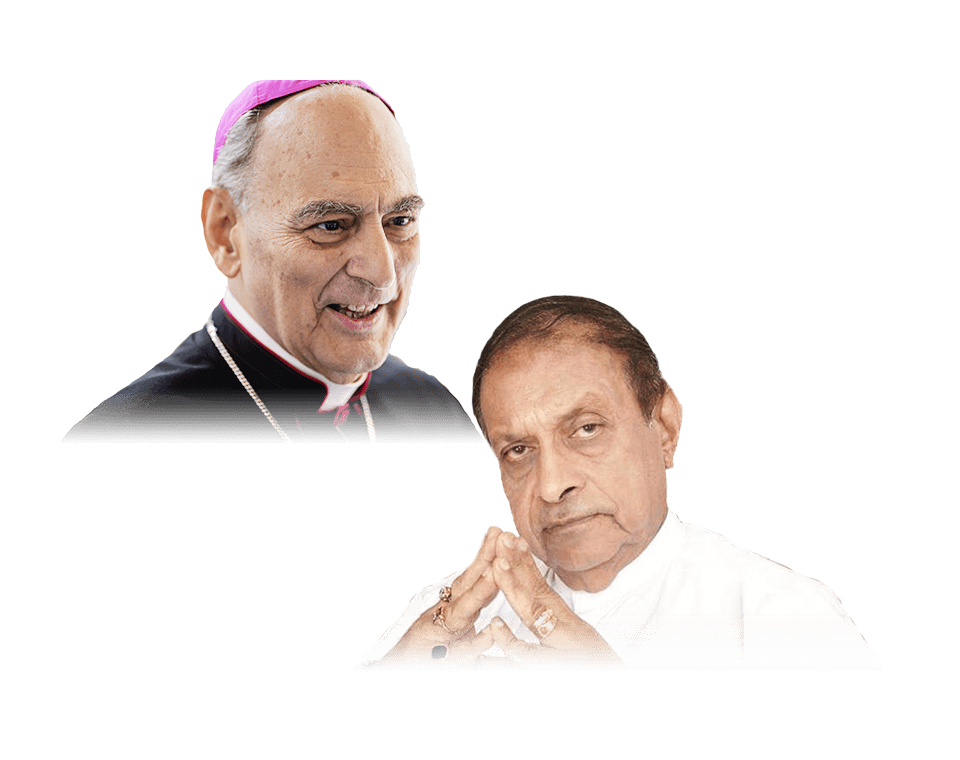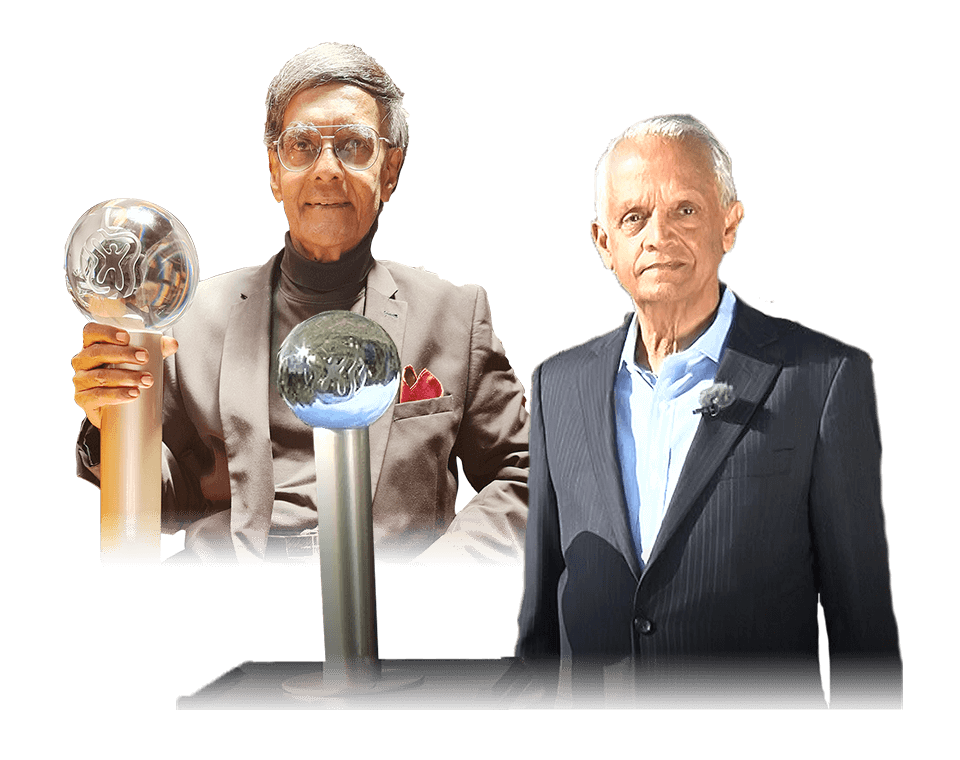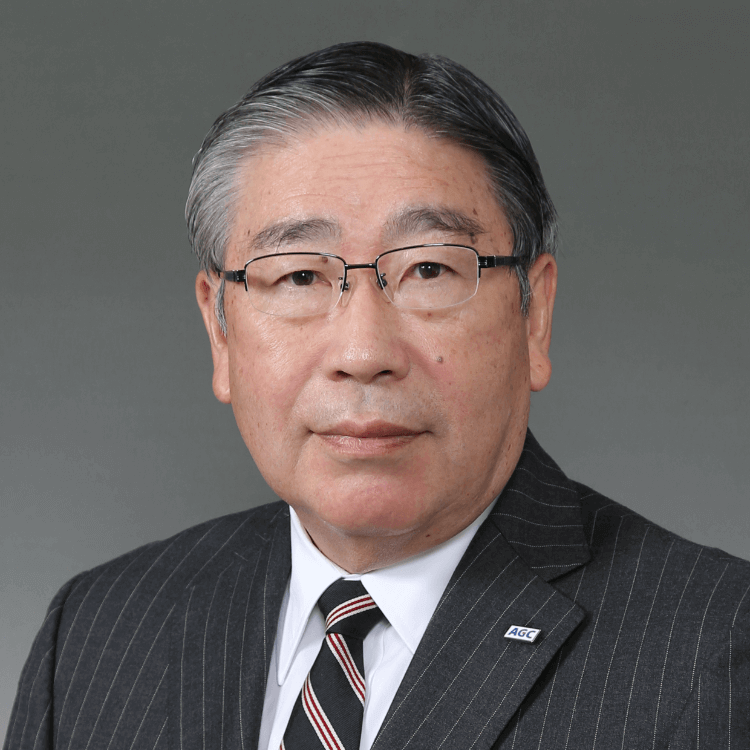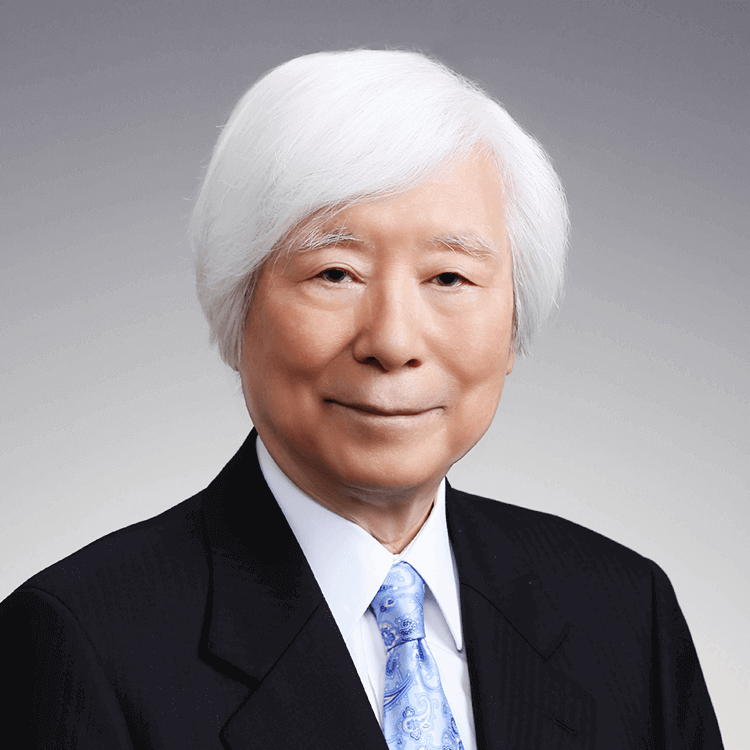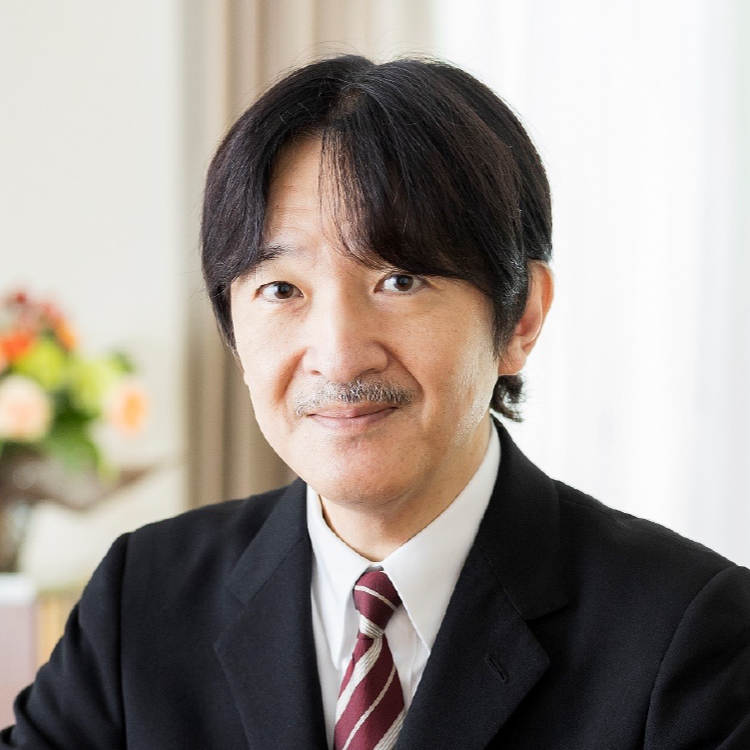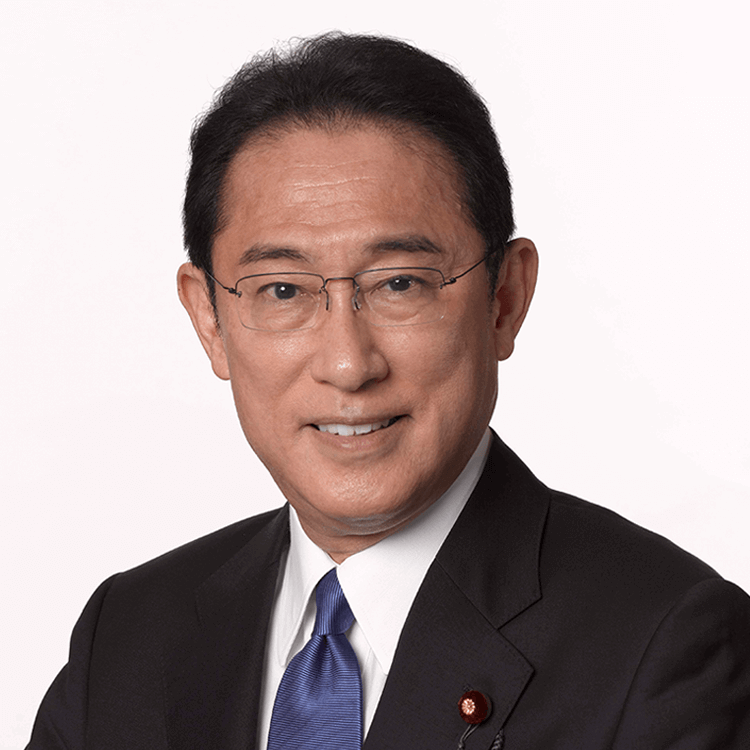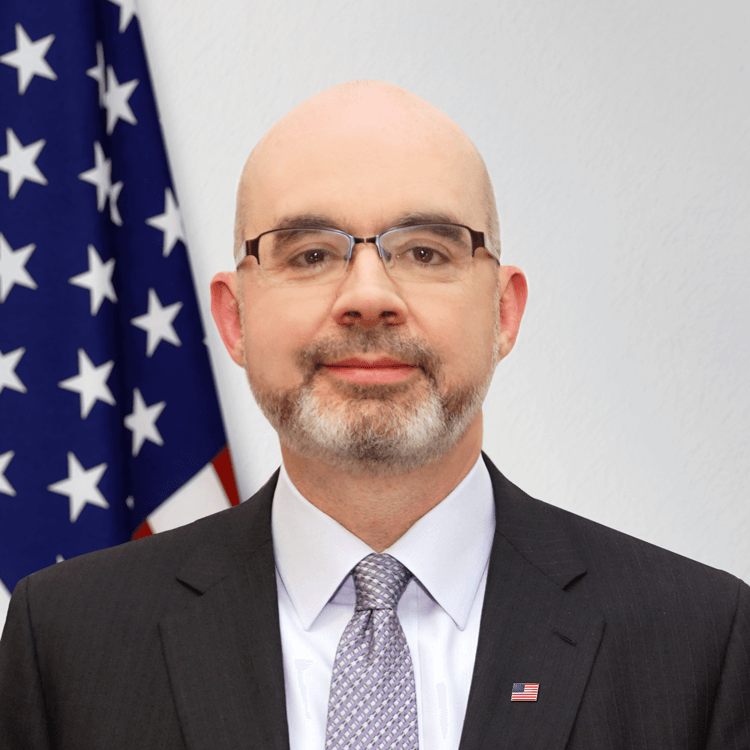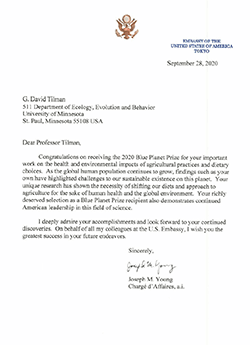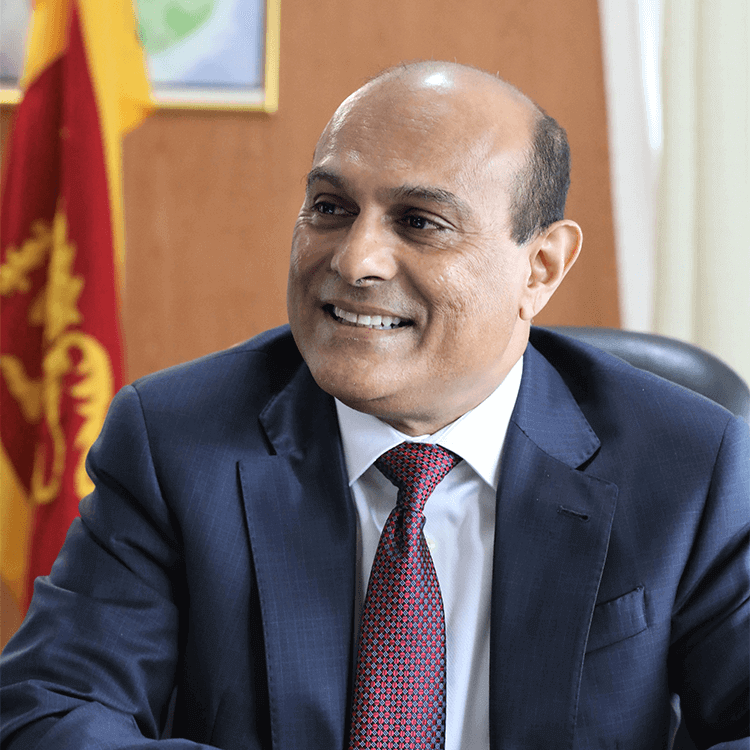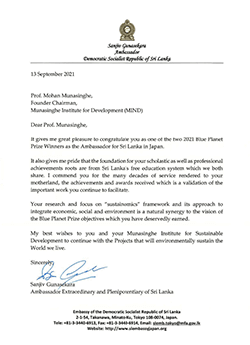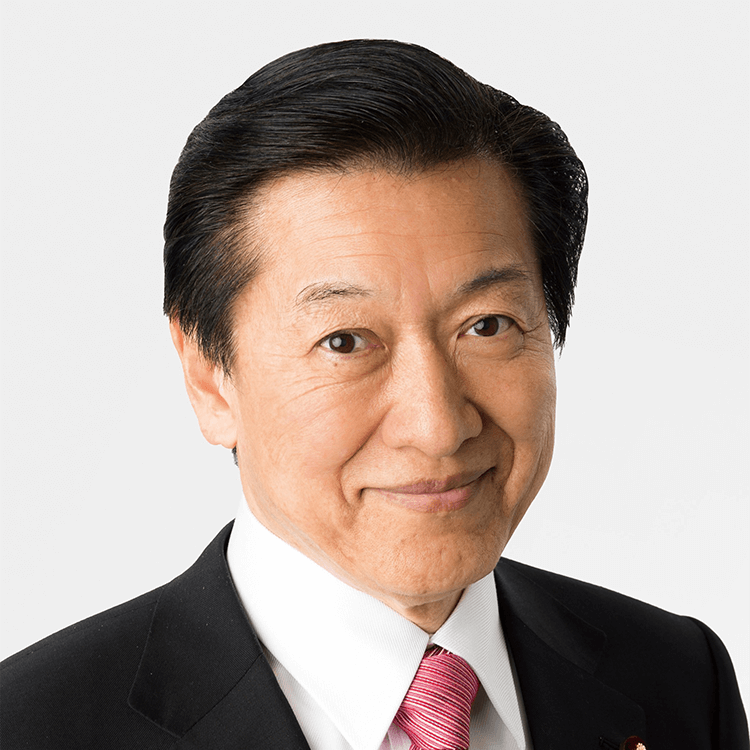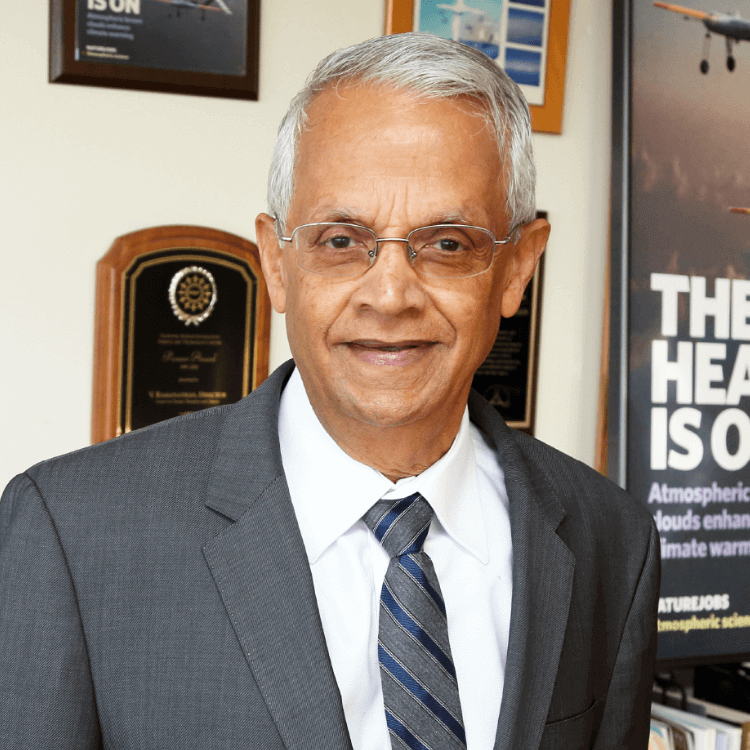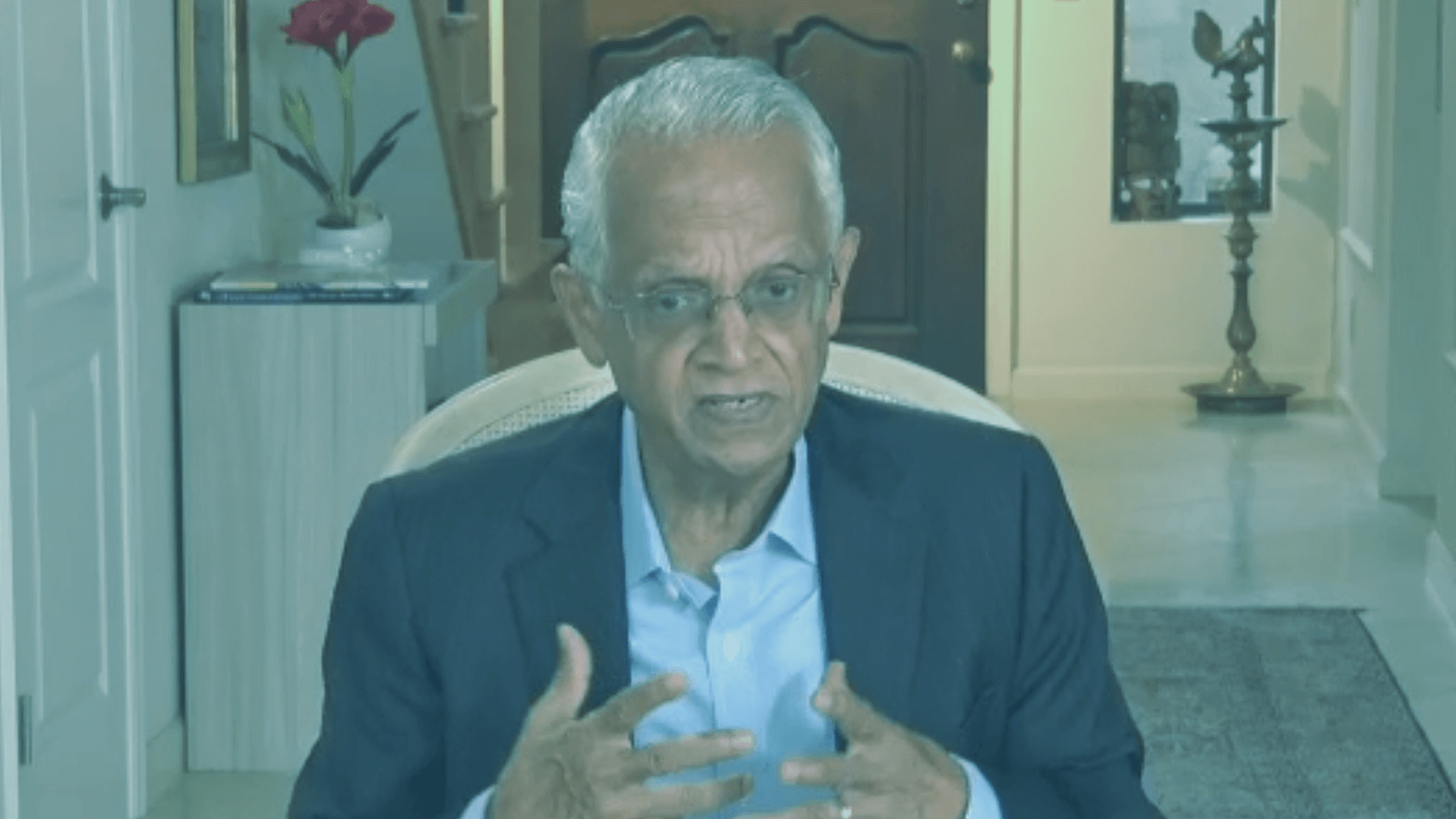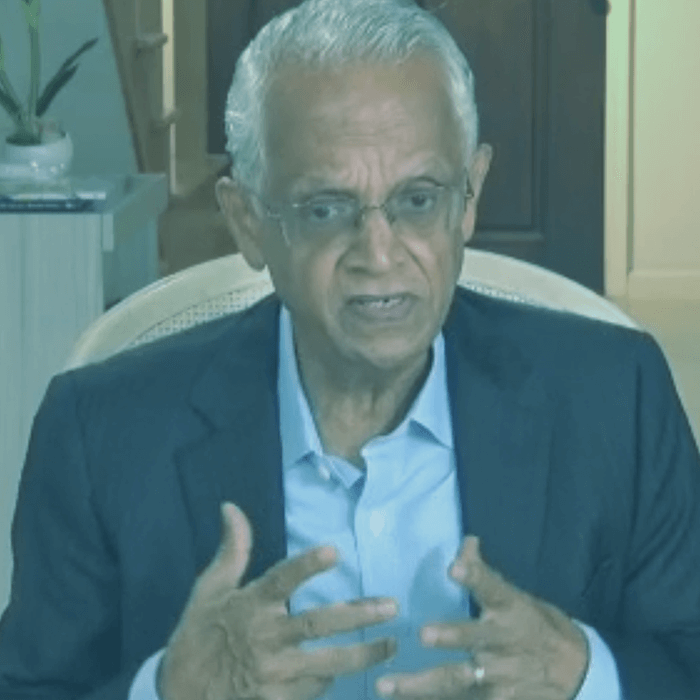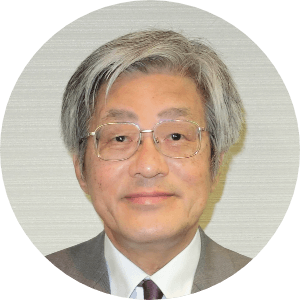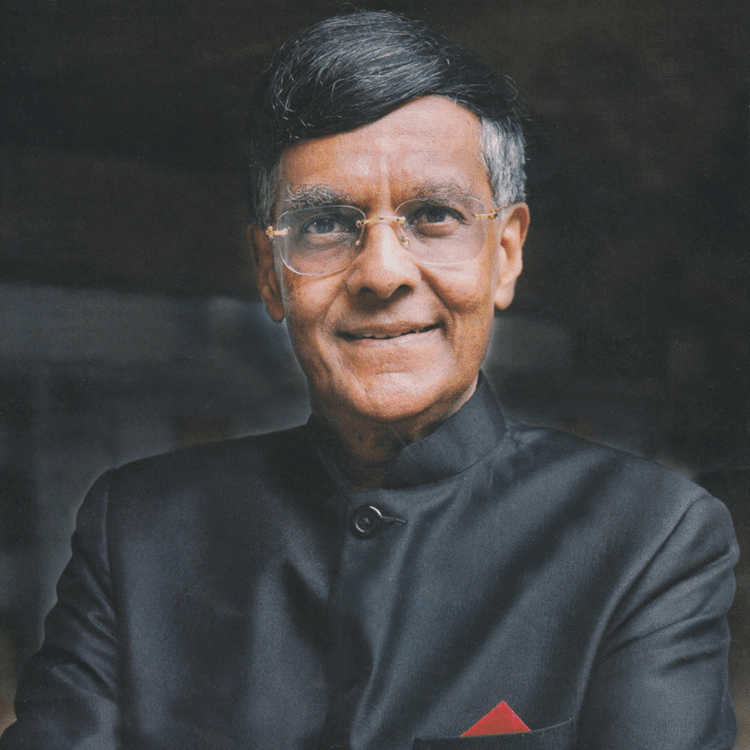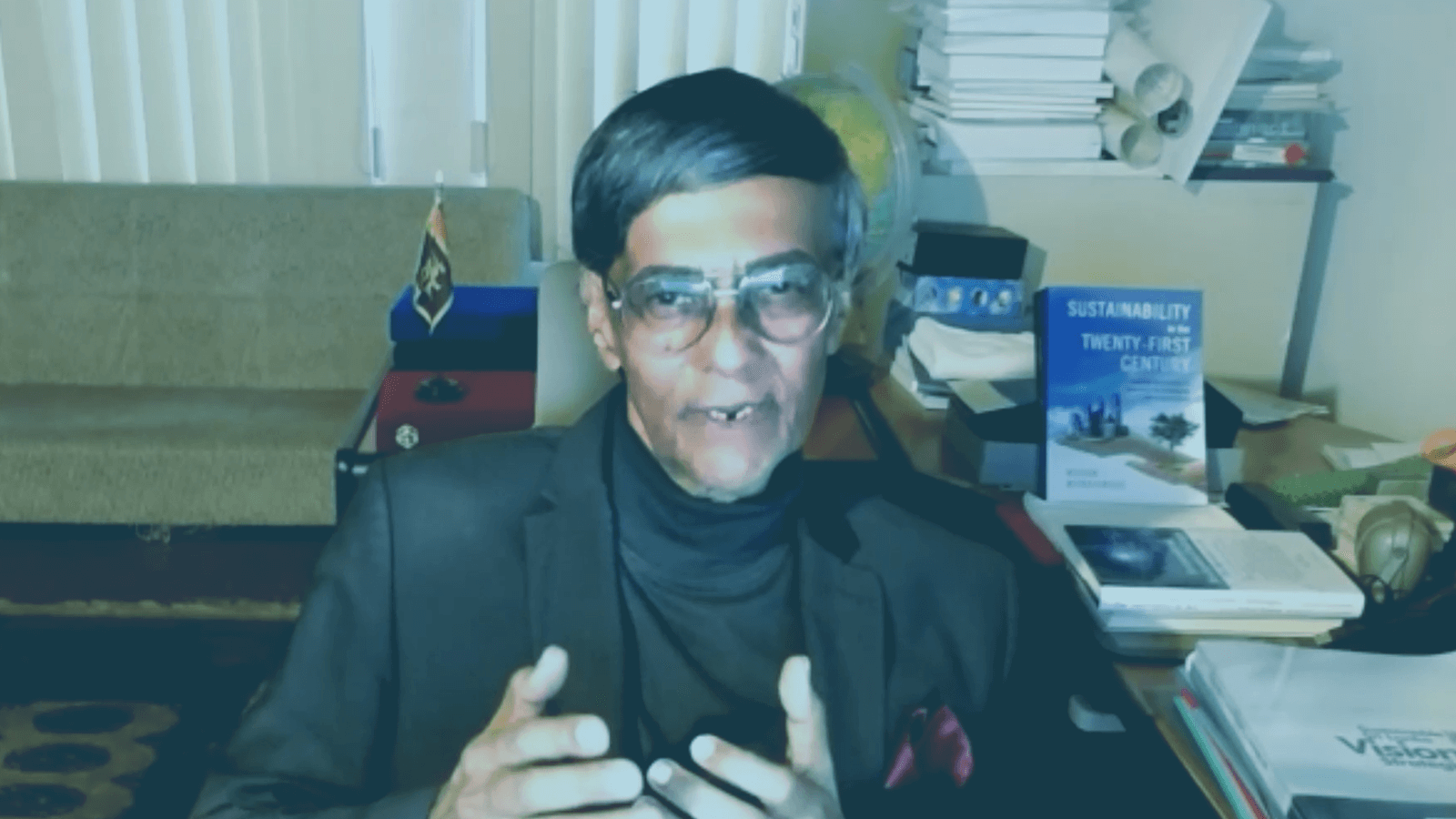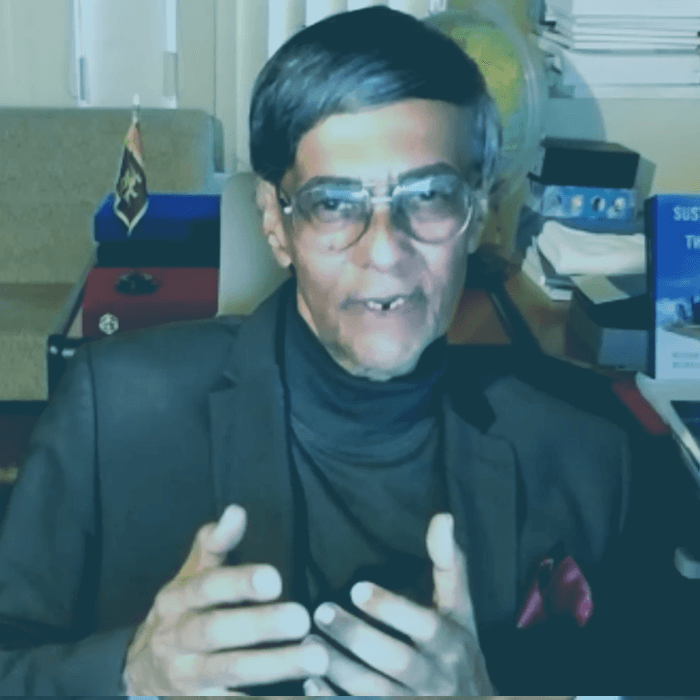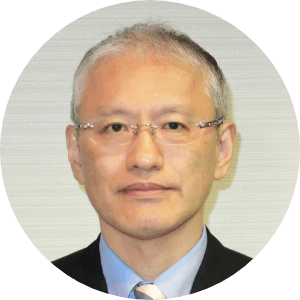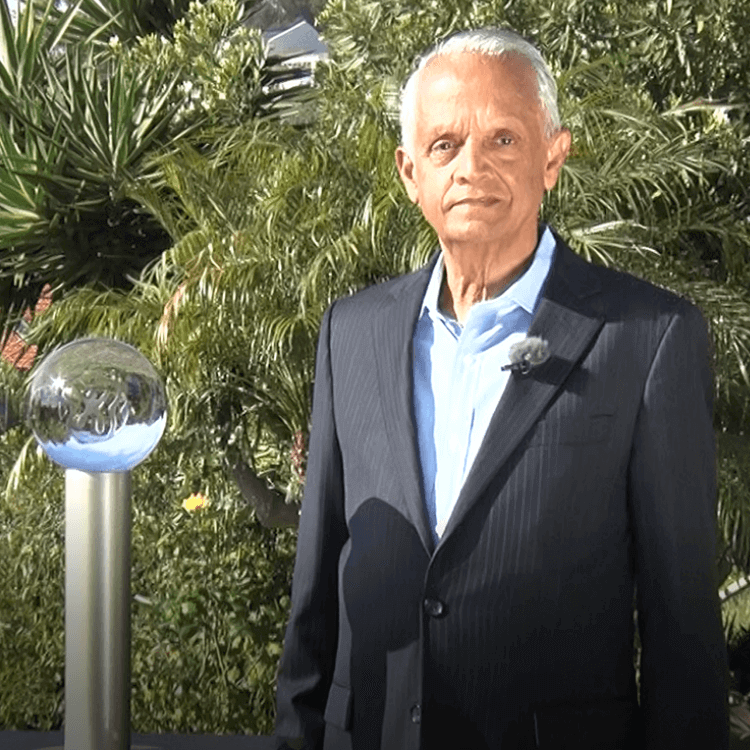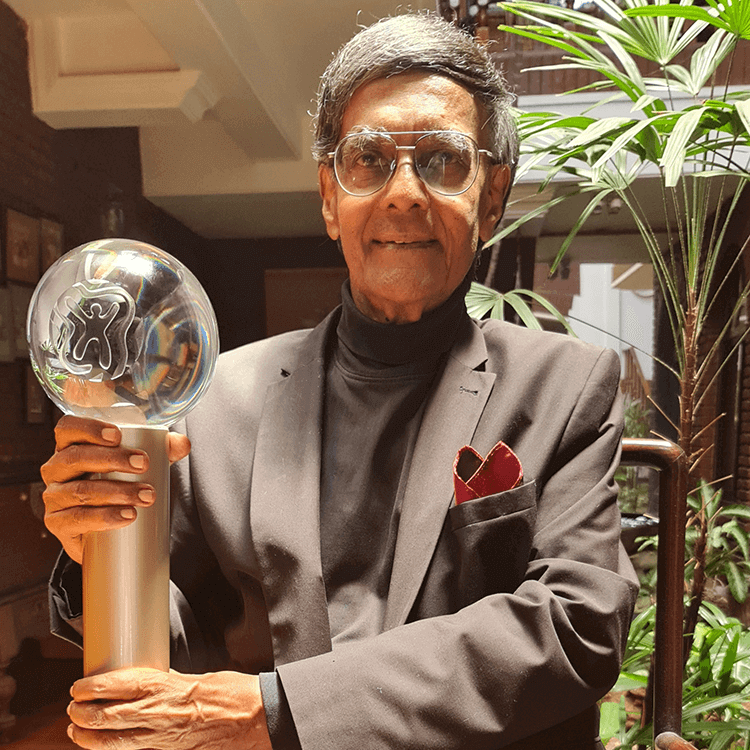I wish to extend my heartfelt congratulations to the laureates of the 30th Blue Planet Prize, Professor Veerabhadran Ramanathan of the United States of America, and Professor Mohan Munasinghe of the Democratic Socialist Republic of Sri Lanka.
Professor Ramanathan has spent several decades investigating the planetary heat-trapping and air polluting effects of short-lived climate pollutants (SLCPs), as distinct from CO2, which is a long-lived climate pollutant (LLCP). His investigations have shown that reducing SLCPs, typically methane and black carbon, can rapidly reduce global warming and significantly improve air pollution. He has subsequently taken the initiative in global actions to reduce SLCPs.
Professor Munasinghe pioneered the ‘Sustainomics’ framework which views development issues from economic, environmental, and social perspectives. He has used environmental economics and policies to develop practical applications, including 'balanced inclusive green growth', which calls for each country to take a sustainable development path in line with its stage of development, and 'millennium consumption goals', which ask the affluent to observe voluntary consumption goals.
I wish to express my deepest respect to the two laureates for their remarkable achievements on this occasion.
It is particularly meaningful to acknowledge that the two laureates have maintained their rare thirst for knowledge and their outstanding powers of action over many years, during which they have sounded the alarm to modern civilization and society, and have mapped out a course for future human activities. I earnestly hope that this year’s laureates, along with other individuals who have deeply considered environmental issues, will continue to play a leading role in realizing a sustainable global environment and improving people’s livelihoods.
The Blue Planet Prize Award Ceremony and related events have not been possible for the second year in succession because of COVID-19. While it is a matter of great regret that I am unable to speak in person with Professor Ramanathan and Professor Munasinghe as well as the other attendees at the Award Ceremony, I very much look forward to the two laureates visiting Japan when the situation permits, and to having an opportunity to gain more knowledge in person of their admirable research and their other activities.
The Blue Planet Prize was established in 1992 to honor those with distinguished achievements in science and technology serving towards the resolution of global issues. Its distinguished past recipients include Dr. Syukuro Manabe, a recipient of the 1st Blue Planet Prize, among other individuals and organizations who have been prominent in various parts of the world. In concluding my address for this 30th Blue Planet Prize, I hope that this Prize will continue to heighten environmental awareness worldwide, and consequently create momentum for action.

